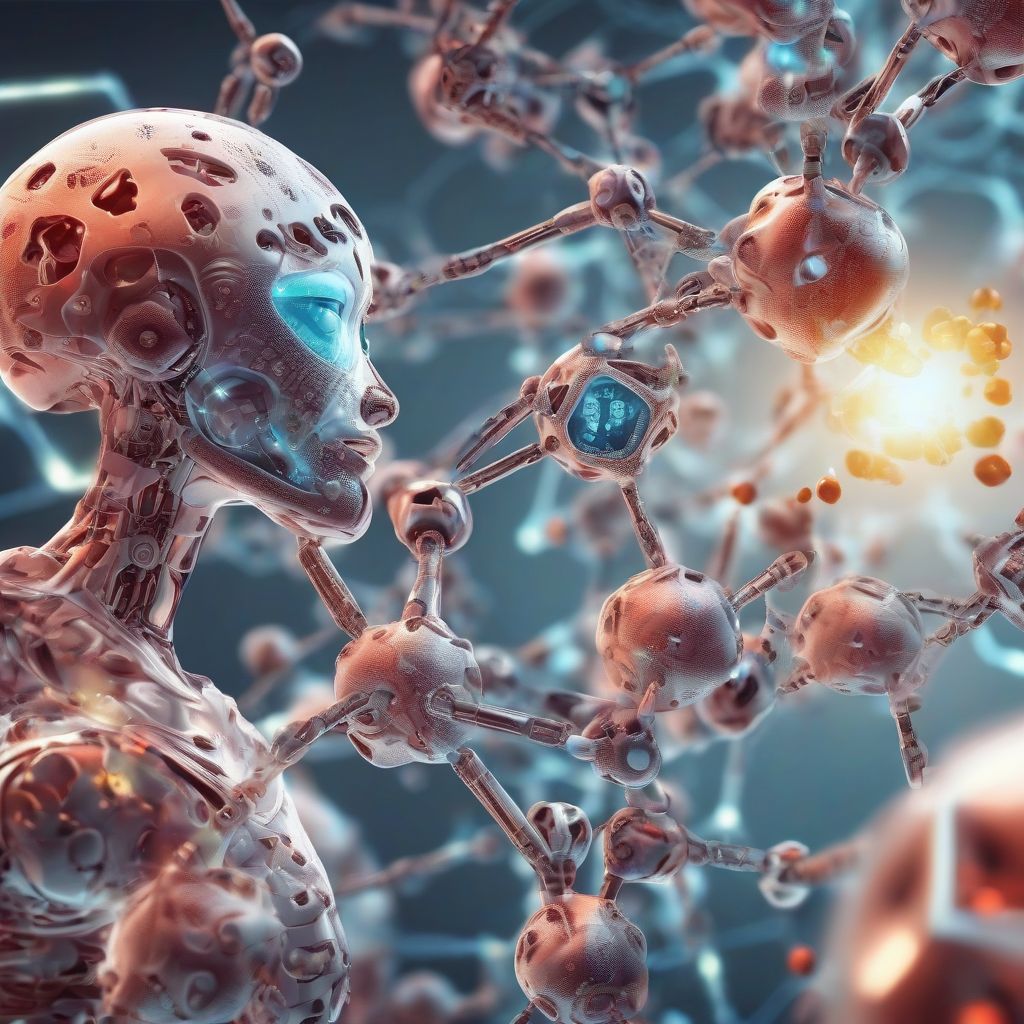Imagine a world where diseases are diagnosed earlier and treated more effectively, where damaged tissues are repaired at a cellular level, and drug delivery is so precise it minimizes side effects. This isn’t science fiction; it’s the promise of nanotechnology in medicine.
As a nutritionist and meal prep coach, I’m passionate about optimizing health. And honestly, the advancements in nanotechnology have me completely captivated. It’s transforming how we diagnose, treat, and prevent diseases, offering new hope for a healthier future.
Understanding the Power of Tiny Technology
Nanotechnology operates on a scale a thousand times smaller than a human hair. It involves manipulating materials at the atomic and molecular levels. In medicine, this means developing nanoscale tools and materials, like nanoparticles, that interact with our biological systems in incredibly precise ways.
Revolutionizing Disease Diagnosis: Early Detection is Key
Early disease detection is critical for successful treatment. Nanotechnology enables the development of highly sensitive diagnostic tools that can detect diseases at an earlier stage than traditional methods. For example, nanosensors can detect biomarkers in the body associated with cancer, Alzheimer’s disease, and other conditions long before symptoms even appear. This early detection allows for timely interventions, significantly improving treatment outcomes.
Imaging: Seeing the Unseen
Nanoparticles can also enhance medical imaging techniques like MRI and CT scans. These particles can be designed to target specific tissues or cells, providing clearer and more detailed images. This allows doctors to better visualize tumors, monitor disease progression, and personalize treatment plans.
Targeted Drug Delivery: Maximizing Effectiveness, Minimizing Side Effects
One of the most exciting applications of nanotechnology in medicine is targeted drug delivery. Traditional drug delivery methods often result in widespread distribution throughout the body, leading to unwanted side effects. Nanoparticles, however, can be engineered to carry drugs directly to the affected cells or tissues, minimizing damage to healthy cells. This targeted approach increases drug effectiveness, reduces side effects, and enhances patient comfort.
Regenerative Medicine: Repairing the Body at a Cellular Level
Imagine repairing damaged tissues and organs with the same ease we reset a broken bone. Nanotechnology is paving the way for this incredible possibility through regenerative medicine. Nanomaterials can be used as scaffolds to guide the growth and repair of tissues, promoting healing in damaged organs, bones, and even nerves. This groundbreaking field holds immense potential for treating conditions like spinal cord injuries, heart failure, and Parkinson’s disease.
Nanomedicine: Addressing Global Health Challenges
Nanotechnology isn’t just transforming healthcare in developed countries; it has the potential to address global health challenges as well. Researchers are developing affordable and accessible diagnostic tools and drug delivery systems using nanotechnology. These innovations can revolutionize healthcare in resource-limited settings, making a significant impact on global health outcomes.
 Nanotechnology in Medicine
Nanotechnology in Medicine
The Future of Medicine is Here
The integration of nanotechnology in modern medicine is revolutionizing healthcare as we know it. From earlier disease detection and more effective treatments to regenerative medicine and targeted drug delivery, the possibilities are truly remarkable. As research and development in this field continue to advance, we can expect even more groundbreaking applications of nanotechnology in the years to come, leading to healthier lives and a brighter future for all.
What Does This Mean For You?
While the science can seem complex, the implications are simple: a future of more personalized, effective, and accessible healthcare. As someone passionate about health and well-being, I’m incredibly optimistic about the potential of nanotechnology to improve lives across the globe.
What are your thoughts on these advancements in nanotechnology and their impact on the future of healthcare? Share your thoughts in the comments below!
[amazon bestseller=”Nanomedicine”]
